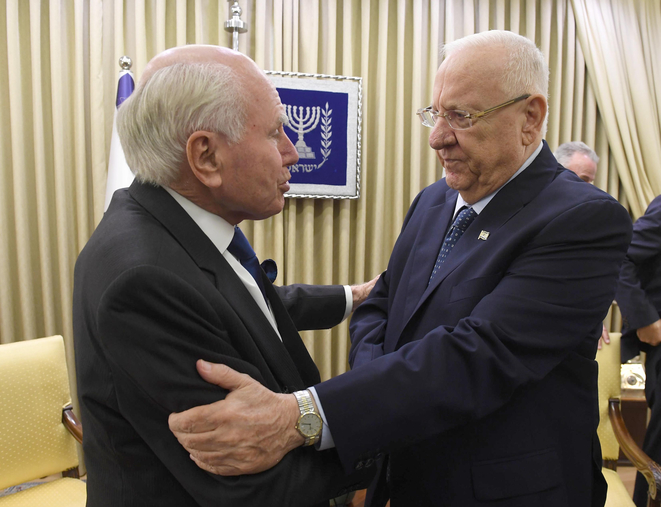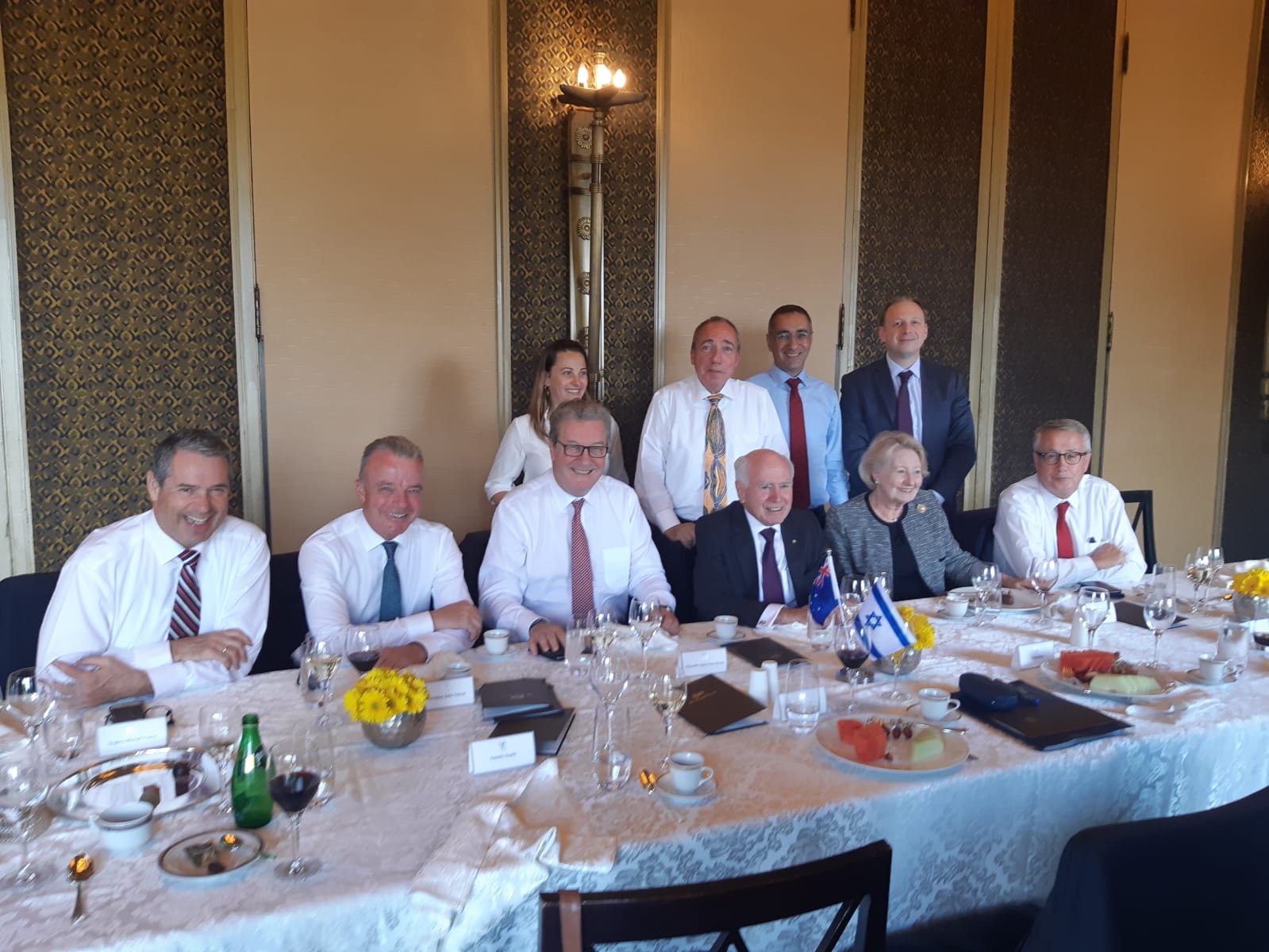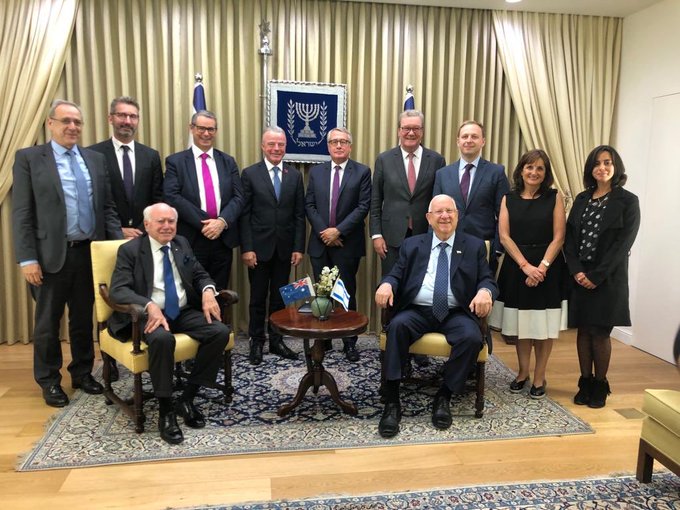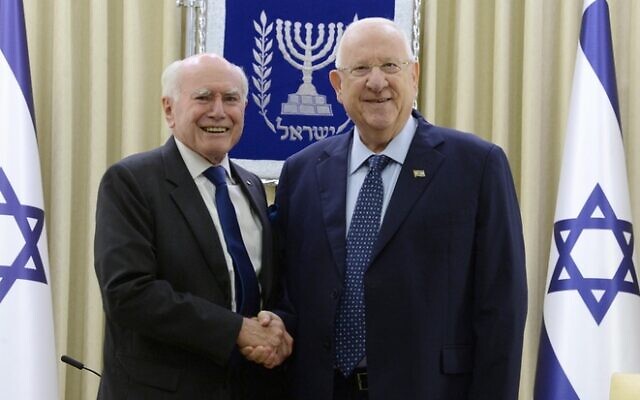Israeli President due to visit in new year
Israeli President Reuven Rivlin has announced he will visit Australia at the start of next year, marking the first visit Down Under by an Israeli head of state in 15 years.
ISRAEL’S President Reuven Rivlin surprised an Australian delegation including former prime minister John Howard in Jerusalem this week – by announcing that he is headed Down Under early next year.
The politicians visiting his residence at the time of the announcement expressed delight, as did Jeremy Leibler, president of the Zionist Federation of Australia which co-hosted the mission with the Israeli Embassy.
 Leibler “conveyed to the president that the Jewish community in Australia will be delighted”, he said afterwards. Steven Lowy, chairman of the trustees for Keren Hayesod, who was also in Jerusalem, said “it will be wonderful” to see Rivlin in Australia.
Leibler “conveyed to the president that the Jewish community in Australia will be delighted”, he said afterwards. Steven Lowy, chairman of the trustees for Keren Hayesod, who was also in Jerusalem, said “it will be wonderful” to see Rivlin in Australia.
Australian politicians, and the Jewish community, were disappointed in 2016 when Rivlin cancelled a trip so that he could go to Russia to talk about security matters.
Straight after Tuesday’s meeting, Rivlin tweeted, “I am looking forward to my visit to Australia at the start of 2020.”

Rivlin’s announcement injected extra excitement into the unofficial festival of Australia–Israel ties that took place this week.
The relationship is always in the spotlight at the end of October, as the anniversary of the Battle of Beersheba takes place. But this year, it became the talk of Israel’s top politicians, as a cross-party delegation from Australia walked Jerusalem’s corridors of power.
Howard led former ministers Wayne Swan, Alexander Downer, Brendan Nelson and Stephen Conroy between Israeli leaders, including Benjamin Netanyahu and Benny Gantz. They explored Israeli high-tech and spoke to defence expert Amos Yadlin and Isaac Ben Israel, president of the Israel Space Agency.

Howard put the Australia–Israel relationship on the agenda of Jewish leaders from around the world, as he addressed a packed hall at the Jewish Agency Board of Governors, talking of the “enormous goodwill” that Australians have for Israel.
A few hours later prominent Israelis were invited to a cocktail reception hosted by the ZFA and the Israel-Australia Chamber of Commerce that celebrated ties. There, Howard praised the IDF, and Jewish Agency chairman Isaac Herzog declared that “there is nothing like the friendship of Australia to the State of Israel”.
The ZFA called it the “highest calibre” cohort of Australian political alumni to visit Israel. As well as high-profile public engagements, the politicians shared intimate moments with locals.
In a small room at Hadassah Hospital, they met a Palestinian couple and heard about the bone marrow transplant given to their baby, who was in the mother’s arms. As Howard walked along a hospital corridor he told The AJN that Israeli healthcare presents an “extraordinary” example of coexistence between people of different faiths and backgrounds.

He said that such stories are not told enough because they “don’t suit the more dramatic media narratives”.
Travelling from the hospital to meet President Rivlin, Howard reflected on his trip and said he was filled with “optimism” by many aspects of Israel, including the “amazing” embrace of technology.
For Conroy, the trip was eye-opening. His last visit to Israel was during the height of the Second Intifada, and there was an attack on the day of his arrival. He was wowed by how much the country has changed: in security terms, which he attributes to the security barrier, and in terms of technology.
He said that Australia’s tech scene will fare better if it learns from Israel’s fail-fast culture, which sees failure in innovation as part of the road to success. He bemoaned that in Australia, there is “zero tolerance for failure”.
Swan offered another lesson that Australia should learn from Israel. He said that Australians who resist offering innovators public funding out of free market principles should look at the Israeli model, which does exactly that, and drop their opposition.
“So much of this industry’s success is spurred by public investment,” he said. “I think there’s a lesson here about policy.”


comments